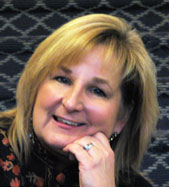
Executive Director
At least once a week, people outside our campus community request offsite access to the online resources of the Health Sciences and Human Services Library (HS/HSL). These requests come from other state agencies, from alumni, from people from other universities. In most cases, we have to say “no,” although we have gotten very good at questioning the requestor looking for any glimmer of possible permission to access. We realize that as the only publicly-funded health sciences library in the State of Maryland and the University System of Maryland our collections are unique and access is desirable for the many educators, researchers, and public health workers across the state.
However, and here is the Grinch part, unlike the days when our collections were primarily print and were “owned” by us, our “e” collections are “licensed.” This is a very important legal distinction as licenses define access and are very precise regarding who can use what and in what context. Licenses also cover how we can lend materials and in what formats. Interestingly, in at least one of our contracts, the University of Maryland Medical Center is not considered part of our library contract because of their separate legal stature. Companies in the BioPark are not considered part of our contracts at all because, from a licensing perspective, they are considered businesses rather than educational institutions – a distinction that affects costs due to significantly differing pricing strategies for businesses and higher education.
We license our resources for our faculty, staff, and students based on campus full-time employee (FTE) counts. Every vendor/publisher license is slightly different, so what is defined in an Elsevier Publishing contract may be different in a Sage Publishing contract. We review these contracts regularly and advocate for as much inclusion as possible.
There are a number of our resources licensed across the University System of Maryland and Affiliated Institutions (USMAI) library consortium. Resources licensed through this consortium are available to everyone throughout all 16 libraries in the consortium. These consortial agreements are negotiated at the USMAI level and HS/HSL staff cannot change any of the conditions of these licenses without involving all libraries.
As the University System encourages and supports collaboration, the USMAI library directors are committed to identifying and resolving issues regarding access for our faculty and students involved in collaborative teaching and research ventures. In our perfect world, ALL resources of ALL USM libraries would be licensed and accessible to ALL our faculty, staff, and students. This would support and enhance collaboration, research, and multidisciplinary programs across the System. Although not easily done – collections need to be studied, overlap identified, licenses renegotiated, and financial support identified – this type of project could have a tremendous impact on public higher education, stimulating economic growth across the state by enhancing collaboration, encouraging discovery, and ensuring access to the best information resources that support our collective missions.
Happy Holidays!
M.J. Grinch






